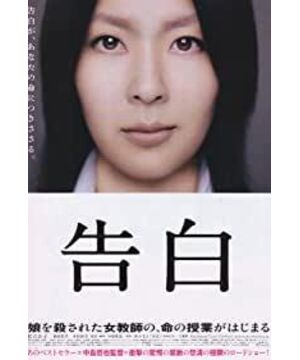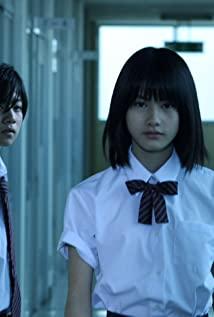The theme of revenge is often raised to the height of ritualization in movies, just like the father roaring up to the sky in "The Virgin Spring", and the girl has become a gurgling spring. "Confession" has established this tone from the very beginning. The low saturation and cool tone not only add a strange atmosphere, but also form a kind of "distance" effect, which is "cold" and "golden" of Nakajima's past. Although the contrast is sharp, the contribution to the narrative is the same. It can even be said that the film does not recognize its authenticity, does not over-interpret and preach, and leaves enough space for you to appreciate and think. The movie "Confession" is not simply about youth education, but rises to a social order bound by invisible shackles. In a world controlled by adults, children's simple thoughts will never get the attention they deserve. If you want to resist, they will never be the opponents of adults. If children want to resist this orderly world, they can only be wiped out like moths to the fire.
Therefore, the two protagonists in the film, Shuya and Naoki, are not exactly the objects of condemnation. Even if they represent a dark side of the children’s heart, the environment that motivates them to commit crimes should be criticized: the lack of family affection and the surrounding environment. Discrimination and being outside of caring make them feel alienated, and they will do everything possible to attract attention, even at the expense of crime. Of course, you will repent if you make a mistake, that is, the personal "confession" in the film. This confession-style monologue advances the development of the story synchronously with the picture, and contributes to the tension of the film itself. The film is also deconstructed here. Each person's confession not only narrates a certain aspect of the truth, but also discovers their own dark links, and these dark links are also intertwined, pushing the story to the final Nirvana. Tetsu Nakajima is also familiar with various methods of flashbacks and interspersed narratives, and also enriches the text structure of the film. High-speed photography makes the story as fragmented as possible. Slow motion shows endless poetry and tension. In addition, there is also a mirror image. The reflected images together make this surreal, kaleidoscope-like world.
However, these are just a substrate of the story. The core part of "Confession" is still about the explanation of love and hate, crime and punishment, and good and evil, even if the director has not made a clear judgment on good and evil. The seemingly gentle teacher Moriguchi is not a kind person. Even though she is pitiful, she is also vicious. She is not eager for success, but has constructed a perfect revenge plan. Compared with the two children, they are much simpler. Naoki is considered a kind of useless and idiot. His low self-esteem made Moriguchi easy to find his life, and he finally killed his mother under artificial pressure with a sword; Xiuya Mizuki's mind is much more mature and difficult to deal with, but one of Mizuki's conversations made Moriguchi see through the mystery and set up a game secretly, and finally defeated him in the fight. Moriguchi's gloom is beyond ordinary people's imagination. Her revenge directly destroyed the will of the two children, causing the latter to endure ten times the suffering of hers, and this suffering will live in their lives like the HIV virus. The explosion at the end of the movie is undoubtedly the climax of the climax, and the sparkling fragments fall like raindrops. This is a bright firework for Moriguchi, but it is Shuya's desperate elegy.
The theme of this movie is naturally heavy, but not at all boring. It should be said that Tetsuya Nakajima has a very high grasp of popular elements. The background sound of Radiohead is very harmonious with the movie. The words such as Zhengtai and Lori can also be accurately To describe the young actors in the film, they even pop up the words "mother-controlled" from time to time, or plant the AKB48 posters that contemporary youth love with great fanfare. Tetsuya Nakajima’s control of the movie is still perfect, and the priorities are just right, enough to make this film another masterpiece after "Pineko". Fortunately, it is Tetsuya Nakashima who brought the novel "Confession" to the screen. We can see such a gorgeous revenge story.
View more about Confessions reviews











